Muhammad Ali Jinnah – The Founder of Pakistan
Popularly known as ‘Quaid-e-Azam’ in Pakistan, Muhammad Jinnah was the leader of the All-India Muslim League from 1913 till Pakistan gained independence in August 1947. He served as the country’s first Governor-General until his death in 1948. By founding Pakistan, Jinnah gave its people a sense of identity, territory and a sense of destiny. In reverence to his political and heroic achievements, the nation observes his birthday as a national holiday.
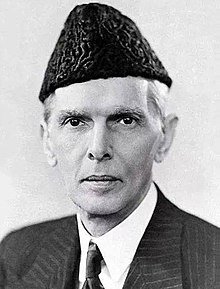
Muhammad Ali Jinnah’s epithet ‘Qaid e-Azam’ means ‘Great Leader’. He was also known as ‘Baba-I-Quam’ which means ‘Father of the Nation’
Early Years
The eldest of 7 children, Jinnah was born into a Karachi mercantile family in 1876. His parents were Jinnahbhai Poonja and Mithibai. Jinnah’s family descended from Iran with some influences of Shai, Sunni and Ismaili.
He studied at the Christian Missionary High School and graduated from Bombay University at age 16. Before Jinnah left for London to train as an apprentice with Graham Shipping and Trading Co., he married his first cousin, Emibai Jinnah and remained with till her death in 1893.
While in London, Jinnah abandoned apprenticeship and enrolled as a law student at Lincoln’s Inn Fields. In 1896 before age 20, he became the youngest Asian to be called to the bar. He developed a fascination with nationalist politics after he had watched Dadabhai Naoroji, Britian’s first Asian MP, deliver a speech at the House of Commons.
Law Practice
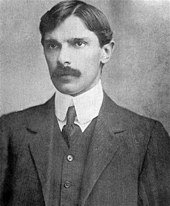
In pursuit of his law practice, he returned to Bombay after a short stopover in Karachi. A typical Indian nationalist, Jinnah loved to see his country liberated from the British colonial rule. In trying to achieve this, he attempted to work within the British system while focusing his efforts on unifying the Hindus, Muslims, Parsees and Christians against the British.
Jinnah was believed to have possessed an assertive and independent spirit that made him appear rude. Though he was careful to not cross the line, he often annoyed his British superiors. He mastered the act of using British law against its own people. He received a number of jail threats on several occasions for daring to speak in favor of Indian home rule or rights. He stepped on the toes of such British political figures as Lord Willingdon, Lord Wavell and Lord Mountbatten, who had all served as Viceroys in India in the twilight years of Britain’s rule of India.
Ambassador of Hindu-Muslim Unity
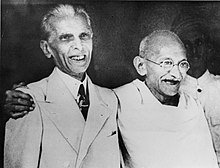
Gandhi and Jinnah were some of the leading members of the Indian Independence movement. Jinnah, like Gandhi, was very committed to Indian nationalism and the two men believed in Hindu-Muslim unity.
Long before he fought for a Muslim Pakistan, Jinnah was known for his unifying role among the Hindus and Muslims. When he first returned from Britain in 1896, he became a member of the Indian National Congress, a pro-Independence political party that was dominated by Hindus.
As secretary to the Dadabhai Naoroji, the president of the political party, he was present at the 1906 session of Calcutta (now Kolkata). In early 1910, he was elected to the Imperial Legislative Council of India in Delhi. This marked the start of a respectable career in Parliament.
Jinnnah got acquainted with politicians like Gopal Krishna Gokhale who a tremendous influence on the young Jinnah. He had once been described by the honorable Gopal Krishna Gokhale as “the best ambassador of Hindu-Muslim Unity”. The moderate politician and social reformer Gokhale was right. For example, Jinnah represented Bal Gangadhar Tilak, a Hindu nationalist and teacher, in court when he was being tried by the British on charges of overt conduct.
The Muslim League
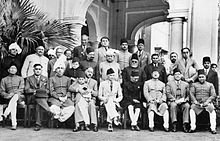
Ali Jinnah and the Muslim League. Image – The leaders of the Muslim League, 1940.
Muhammad Ali Jinnah’s politics was initially woven around the need to see India esteemed in the international community and to create an Indian national identity among the people of India. The young lawyer and politician began to strong notions of Indian nationalism.
At the start of the 20th century, however, he was persuaded that Muslims in India needed a unique and separate identity instead of a collective national identity that would most likely be Hindu. This idea became the driving force behind the formation of the All-India Muslim League in 1906.
A member of the Indian National Congress (INC), Jinnah declined joining the Muslim League until 7 years after its formation. By this time, he had been assured by the leaders of the organization of their primary concern with the political liberation of India.
Jinnah rose through the ranks to serve as the president of the League from 1920 to 1930 and again from 1937 to 1947, when Pakistan was founded under his leadership. He was able to achieve an agreement between the Congress and the League with regards to reforms. Muslims were assured of a 30% representation in provincial councils. Gradually, a united front was built against the British Empire – a front whose voices kept increasing for the liberation of Indian subcontinent.
Political Unification
Historians have described Jinnah’s ambassadorial duties in the Muslim League and the INC as the climax of his political career. Through him, the two organizations started holding their yearly sessions together.
In 1915, sessions took place at Bombay, and the following year, the Lucknow Pact was signed at a meeting at Lucknow. The Pact had to do with both the government structure of India and the relations of the Hindu and Muslim communities.
Steadily, Jinnah began to win both national and international admiration for his political tact. An American historian, Wolpert, in his biography, described him as sounding “like Ronald Coleman, dressed like Anthony Eden, and was adored by most women at first sight and admired or envied by most men…”
A wife of a British general, after encountering Jinnah, described the young politician as eloquent and mannered in his ways. She added, Jinnah models “his manners and clothes on Du Maurier, the actor and his English on Burke’s speeches. He is a future Viceroy….”
Mahatma Gandhi’s Emergence
With the 1920s came Mahatma Gandhi, a refreshing force in Indian politics. Many people fell in love with his radical beliefs and political style. He was able to draw in both the Home Rule League and the Congress Party.
Soon enough, Jinnah had been taken off center stage and relegated to the shadows. Jinnah was unhappy with Gandhi’s fixation on Hinduism and its associated violence that was being perpetrated across ethnic lines.
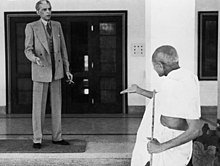
As Britain hastily prepared to leave India, the relationship between the Hindus and Muslims became even more strained. Image – Jinnah with Mahatma Gandhi in Bombay, 1944
Jinnah continued to serve as the president of the almost defunct Muslim League throughout the decade. His continuous frosty relationship with the British leaders did not help matters.

In 1929, while Jinnah was trying to find his feet on a political terrain that had stopped making sense to him, his second wife, Ruttie, died. He relocated to London with his family and resumed his work as an attorney. He, throughout this period, had faded off the Indian political scene.
Jinnah made a lot of money as a lawyer. In fact, he was believed to be one of the highest paid. He belonged to the upper class and lived an affluent life in Hampstead, London during the early 1930s in London. He was reputed to be a well-dressed man who was particularly attentive to his physical appearance. He was also a great property investor and had several homes.
The Birth of Pakistan
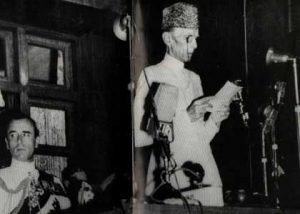
Jinnah speaking at the Constituent Assembly of Pakistan on 14 August 1947, the day Pakistan became independent
In 1935, Jinnah came back to India to lead the Muslim League upon the request of some political leaders. He steered the affairs of the League and created new structures. He also led the organization during the 1937 elections.
Though Jinnah was well-liked and admired, not all Muslims considered him a role model. Many thought him to be “too westernized.” An attempt was made on his life in late 1943, but the assailant was caught before he could inflict fatal injuries.
In 1940, Jinnah presided over a meeting where discussions concerning the Lahore Resolution were held. This Resolution was added as a creed in the All-India Muslim League constitution. The creed rejected the idea of a united India in place of an independent Muslim state consisting of Punjab, N.W.F.P and Balochistan, Bengal and other provinces. The Resolution formed the basis of the 1946 Muslim League decision to establish one state for the Muslims instead of two. The passage of the Pakistan Resolution represented a change of direction for the Muslims. Rather than fight for an alliance with the Hindu community, they preferred to walk a path that will lead to a separate homeland for the Muslims in India.

Until late 1930s, Muhammad Ali Jinnah, also known as Quaid-e-Azam (‘Great Leader’), was a big advocate of Indian nationalism, believing that Hindus and Muslims could co-exist in one independent country. However, that all changed in the early 1940s just as the Great Britain was preparing to grant India its independence. The rift between Hindu-dominated Indian National Congress and the Muslim League caused the British to hastily partition subcontinent into Muslim-dominated Pakistan and Hindu-dominated India.
The period from 1945-6 witnessed victory for the Muslim League in the general elections. The League had, by this time, gained momentum as the third force in India, together with the National Congress and the British. Jinnah eventually won the admiration of Gandhi who considered him Quaid-i-Azam (‘Great Leader’). Nationwide, he was regarded as a hero for British Indian Muslims.
In spite of the roller coaster ride on the road to Pakistan, Jinnah maintained steady strides. Upon Britain’s agreement to the partitioning of India in 1947, Pakistan was birthed by uniting the Muslim-majority regions in the eastern and northwestern parts of British India.
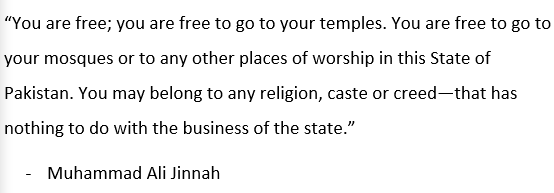
The Death of Muhammad Ali Jinnah
Jinnah struggled with deteriorating health as a result of tuberculosis. He was believed to be a heavy smoker. He died in September 1948 at his Karachi home at age 71. Masses of people trooped to his burial service and a moment of deep grief swept through the nation.
Legacy
Pakistan remains the most important legacy of Jinnah. Wolpert again referred to him in a speech in 1998 and described him as Pakistan’s greatest leader. The former Finance Minister of India, Jaswant Singh said “With Jinnah’s death Pakistan lost its moorings. In India, there will not easily arrive another Gandhi, nor in Pakistan another Jinnah.”
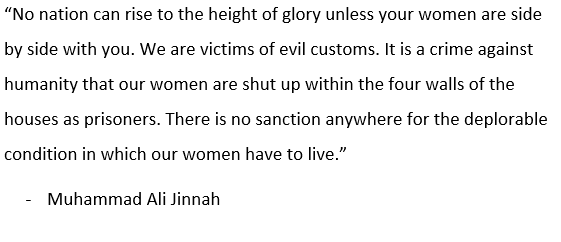
Jinnah on women’s rights
























